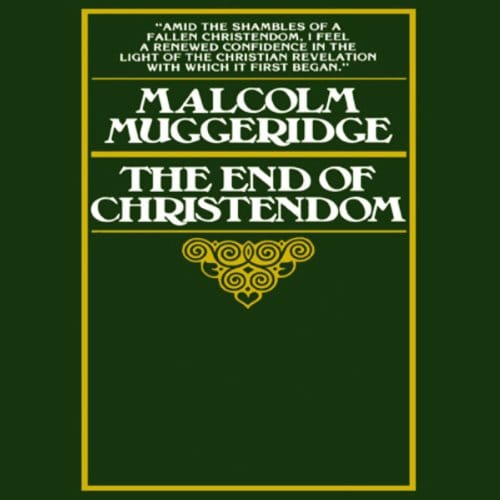The End of Christendom, by Malcolm Muggeridge
That guy trying to eat your brains? He didn’t survive the zombie attack.

A Micro-Review Essay
“Christendom has dreamed up its own dissolution in the minds of its own intellectual elite.”
St. Mugg. A vigorous anti-modernist who was first modernist. Stylish, cutting-edge, popular. He had the bedpost knots to prove it. But he pivoted. Hard: knocked by that supreme anti-modernist, Mother Teresa, into belief. St. Mugg then turned to other anti-modernists: Pascal, Johnson, Blake, Dostoyevsky, Solzhenitsyn, whose thoughts and words formed his later life more surely than a good Jesuit forms a young boy’s mind. This book is as bleak as it is short. Pages: 62 total, which is roughly equal to the number of minutes St. Mugg thought Christendom had left. We might scoff now, 42 years later, noting that Christendom has survived, but it hasn’t. That guy trying to eat your brains? He didn’t survive the zombie attack. And Christendom hasn’t survived its attackers, all of whom came from the inside. Christendom started with Constantine and ended with . . . the Reformation? Napoleon? The Lambeth Conference? Vatican II? BXI’s resignation? Pick your nail. Pick ’em all. Christendom has been gone a long time, its body covering a Hansen heart and the leprotic rashes showing all over: vapid liturgy, ugly churches, deformed ideas. St. Mugg reflects on it here, with biting humor, plus an optimism that would be odd if it came from a modern thinker who, by definition, has no greater hope.



